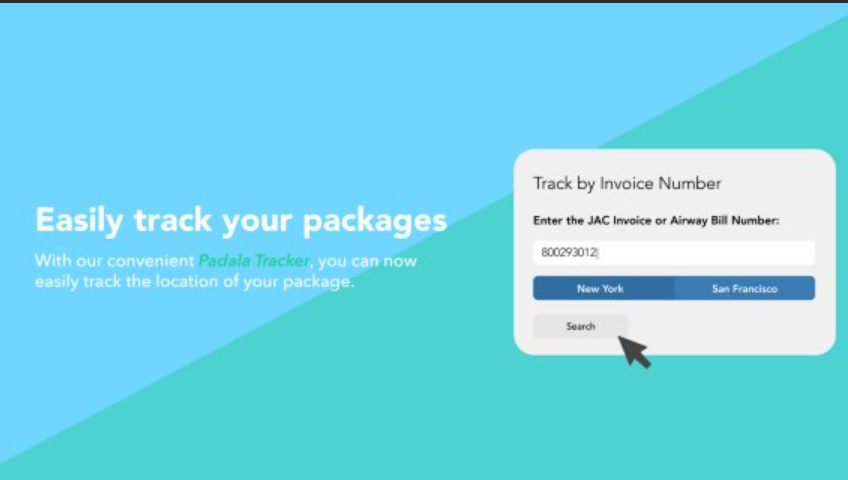Cargo tracking number
Introduction to Cargo Tracking
In today’s globalized world, the movement of goods across borders is more complex and fast-paced than ever before. Efficient cargo tracking has become an essential aspect of logistics, providing real-time insights into the whereabouts of shipments. This process not only enhances operational efficiency but also ensures that customers and businesses have the information they need at their fingertips. At the core of cargo tracking lies the cargo tracking number—a unique identifier that holds the key to tracking and managing shipments across the globe.
What is a Cargo Tracking Number?
A cargo tracking number is a unique code assigned to a shipment when it is dispatched from the origin to its destination. This number serves as a reference point throughout the entire shipping process, allowing carriers, customers, and logistics partners to monitor the progress of the shipment. The purpose of the tracking number is multifaceted: it helps in tracking the shipment, managing inventory, handling customer inquiries, and ensuring that the shipment reaches its intended destination safely and on time.
Tracking numbers come in various forms, depending on the mode of transport (air, sea, rail, or road) and the specific requirements of the carrier or logistics provider. Common types of tracking numbers include the Airway Bill Number, Bill of Lading Number, and Container Number. Each type of tracking number serves a specific purpose and is used by different sectors within the logistics industry.
How Cargo Tracking Numbers Work
The process of generating a cargo tracking number begins when a shipment is booked with a carrier or logistics provider. The tracking number is then integrated into the carrier’s shipping system, where it is linked to the shipment’s details, including the origin, destination, weight, and contents. As the shipment moves through various stages—such as loading, transit, and unloading—the tracking number is updated with new information, providing real-time visibility to all stakeholders involved.
Modern tracking systems utilize advanced technologies such as GPS, RFID, and IoT to ensure accurate and timely updates. These systems are designed to be user-friendly, allowing customers to easily access tracking information through online platforms or mobile apps.
Different Types of Cargo Tracking Numbers
Cargo tracking numbers vary based on the mode of transport and the specific requirements of the logistics provider. Some of the most common types include:
- Airway Bill Number: Used for air cargo, this number is issued by the airline and serves as the primary reference for tracking shipments.
- Bill of Lading Number: This number is used for sea freight and serves as the legal document between the shipper and carrier.
- Container Number: Typically used for intermodal freight, this number identifies the container and is essential for tracking its movement across different modes of transport.
- Rail and Road Cargo Tracking Numbers: These are used for shipments transported by rail or road and vary by carrier.
Each of these tracking numbers plays a crucial role in ensuring that the shipment is accurately tracked and delivered.
How to Obtain a Cargo Tracking Number
Obtaining a cargo tracking number is straightforward. It is usually provided by the carrier or logistics provider at the time of booking the shipment. In some cases, tracking numbers can also be obtained through online platforms where the shipment is booked or through freight forwarders who handle the logistics on behalf of the customer.
How to Use a Cargo Tracking Number
Using a cargo tracking number is simple. Most carriers provide online tracking platforms where customers can enter their tracking number and receive real-time updates on their shipment’s status. Additionally, many logistics companies offer mobile apps that provide tracking information on the go. For more detailed inquiries, customers can contact the carrier’s customer support team and provide their tracking number to receive assistance.
Benefits of Using Cargo Tracking Numbers
Cargo tracking numbers offer numerous benefits, including:
- Real-Time Cargo Monitoring: Customers can track their shipments in real-time, providing peace of mind and reducing the risk of lost or delayed shipments.
- Enhanced Security: Tracking numbers help ensure that shipments are secure and that any issues can be quickly addressed.
- Improved Customer Service: By providing customers with accurate tracking information, businesses can enhance their customer service and build trust.
- Documentation and Record Keeping: Tracking numbers are essential for maintaining accurate records of shipments, which is crucial for inventory management and regulatory compliance.
Challenges and Limitations of Cargo Tracking Numbers
While cargo tracking numbers are highly effective, they are not without their challenges. Some common issues include:
- Accuracy Issues: Tracking information may not always be accurate, particularly if the shipment is in a remote location or if the tracking system is not updated in real-time.
- Technology Dependence: Cargo tracking relies heavily on technology, and any technical issues can lead to delays or inaccuracies in tracking information.
- Delays in Updates: In some cases, tracking information may not be updated promptly, leading to uncertainty about the shipment’s status.
- Cross-Border Tracking Challenges: Tracking shipments across borders can be complex due to varying regulations and systems in different countries.
The Role of Technology in Cargo Tracking
Technology plays a pivotal role in the effectiveness of cargo tracking systems. GPS and RFID technologies are commonly used to provide real-time location data, while the Internet of Things (IoT) enables enhanced connectivity between devices. Additionally, blockchain technology is being explored as a means of securing tracking information and ensuring that it is tamper-proof.
Cargo Tracking Number Formats
Cargo tracking numbers come in various formats, depending on the carrier and the mode of transport. While there are standard formats, variations exist based on specific carrier requirements and whether the shipment is domestic or international. Understanding these formats is essential for accurately tracking shipments.
Global Cargo Tracking Systems
Global cargo tracking systems are designed to integrate with international supply chains, providing seamless tracking across borders. Major cargo tracking platforms offer extensive coverage and are used by logistics providers worldwide. However, regional differences can impact the effectiveness of these systems, making it important to choose the right platform based on the specific needs of the shipment.
Security Concerns with Cargo Tracking Numbers
Security is a major concern with cargo tracking numbers, as they can potentially be misused if they fall into the wrong hands. Data privacy is another issue, particularly with the increasing use of digital tracking platforms. To mitigate these risks, carriers and logistics providers must implement robust security measures, such as encryption and access controls, to protect tracking information.
Industry Regulations and Standards
The use of cargo tracking numbers is governed by various industry regulations and standards. International guidelines set by organizations such as the International Air Transport Association (IATA) and the International Maritime Organization (IMO) provide a framework for the use of tracking numbers. Additionally, compliance with local laws is essential for ensuring that shipments are tracked in accordance with legal requirements.
The Future of Cargo Tracking
The future of cargo tracking is likely to be shaped by emerging technologies and trends. Innovations such as artificial intelligence, machine learning, and blockchain are expected to revolutionize the way shipments are tracked, providing even greater accuracy and security. As the logistics industry continues to evolve, cargo tracking will remain a critical component of supply chain management.
Frequently Asked Questions (FAQs)
- What should I do if my tracking number isn’t working?
- If your tracking number isn’t working, first verify that you have entered it correctly. If the issue persists, contact the carrier’s customer support for assistance.
- Can a cargo tracking number be reused?
- Generally, cargo tracking numbers are unique to each shipment and cannot be reused. However, in some cases, tracking numbers may be reassigned after a certain period.
- What information can I get from a tracking number?
- A tracking number provides information such as the current location of the shipment, its status (in transit, delivered, etc.), and expected delivery date.
- How long is a cargo tracking number valid?
- Cargo tracking numbers are usually valid until the shipment is delivered. Some carriers may allow access to tracking information for a limited time after delivery.
- How secure are cargo tracking numbers?
- Cargo tracking numbers are generally secure, but they can be vulnerable to misuse if not properly protected. It’s important to keep tracking information confidential.
- What happens if I lose my cargo tracking number?
- If you lose your tracking number, contact the carrier or logistics provider with your shipment details to retrieve the tracking information.
Conclusion
Cargo tracking numbers are indispensable tools in the modern logistics industry. They provide critical information that ensures shipments are monitored and managed effectively, contributing to the overall efficiency and security of the supply chain. As technology continues to advance, the future of cargo tracking holds the promise of even greater innovation and reliability.




